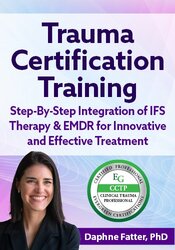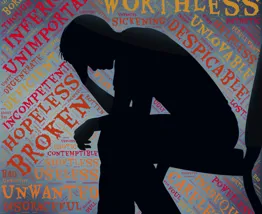Enrol in an online course today for flexible, self-paced learning—no fixed schedule required. Plus, enjoy lifetime access to course materials for convenient revisiting.
The Chronic Fatigue Enigma - 1/2

Chronic fatigue affects an estimated 250,000 people in the UK alone but contemporary psychotherapy has developed few therapeutic perspectives and appears largely ignorant of this complex condition. This annual awareness day is a good opportunity to challenge mistaken beliefs of chronic fatigue and highlight some common difficulties when chronic fatigue is a presenting issue in the therapeutic relationship.
Chronic fatigue describes a spectrum of severe, disabling and persistent fatigue, which will not improve with rest and lack explanations such as a severe illness. Commonly diagnosed as myalgic encephalopathy (ME) or ‘chronic fatigue syndrome’ (though definitions of these terms vary), chronic fatigue is also associated with other conditions such as fibromyalgia. In common with other complex severe conditions, chronic fatigue may dominate therapeutic spaces as a single issue that can easily obscure sight of the person and any other presenting issues.
Chronic fatigue in psychotherapy practice
Chronic fatigue commonly makes for fragile or fraught therapeutic alliances. A common flashpoint is the ‘causation’ issue, which often presents as a polarising edge of biological-psychological dualism in the therapeutic relationship. Chronic fatigue usually presents with a number of predisposing, precipitating (see Brian Broom’s Meaningful Disease, Karnac, 2007; and my paper, ‘Chronic fatigue phenomena: somatic and relational perspectives’, in Body, Movement and Dance in Psychotherapy, Vol 12 (4), 2017 - a free download of which is currently available to readers of this blog) and concomitant factors such as severe stress and anxiety levels. But therapists cannot afford to lose sight of the fact that there is not a shred of evidence that could support any direct causal links with emotional or psychological problems.
While traumatic disturbances are of course common in any demographic sample from all sections of society and clients presenting with chronic fatigue are no exception, there are neither indications nor evidence for chronic fatigue causation. Other common themes are clients not feeling heard and fears that psychotherapy interventions may lead to relapse or worsen symptoms. Such flashpoints mostly have their roots in past experience rather than presenting maladaptive responses, and often create obstacles to forming a therapeutic alliance.
Treatments
There are apparently no effective medical treatments, which only adds to any deep and debilitating feelings of helplessness and hopelessness both clients and therapists commonly need to navigate.
- Both NICE (UK) recommended treatments, CBT and ‘Graded Exercise Therapy’ (GET), are controversial (in one patient survey, 74 per cent reported negative effects), whereas self-help techniques such as ‘Emotional Freedom Technique’ (EFT) tapping reportedly support recovery.
- Sensorimotor and Autonomic Nervous Systems appear central to chronic fatigue phenomena and key to understanding and working psychotherapeutically with ‘tired but wired’ hyper-anxiety (see my 2017 paper, mentioned earlier), stress phenomena which seem commonly present within the chronic fatigue spectrum.
- Sensorimotor numbing or Polyvagal psychophysiological dynamics, such as the continuum of immobilisation-with-fear and immobilisation-without-fear, may carry multiple layers of soma and meaning which psychotherapy is well equipped to explore. But, and this is a big but, only at a pace and in ways that meet the needs of clients presenting with chronic fatigue.
In tomorrow’s blog, I will focus on the implications of chronic fatigue for meaning making and the therapeutic frame.
Click here to download a free version of Tom Warnecke’s 2017 paper, ‘Chronic fatigue phenomena: somatic and relational perspectives’, in Body, Movement and Dance in Psychotherapy, Vol 12 (4), 2017


















